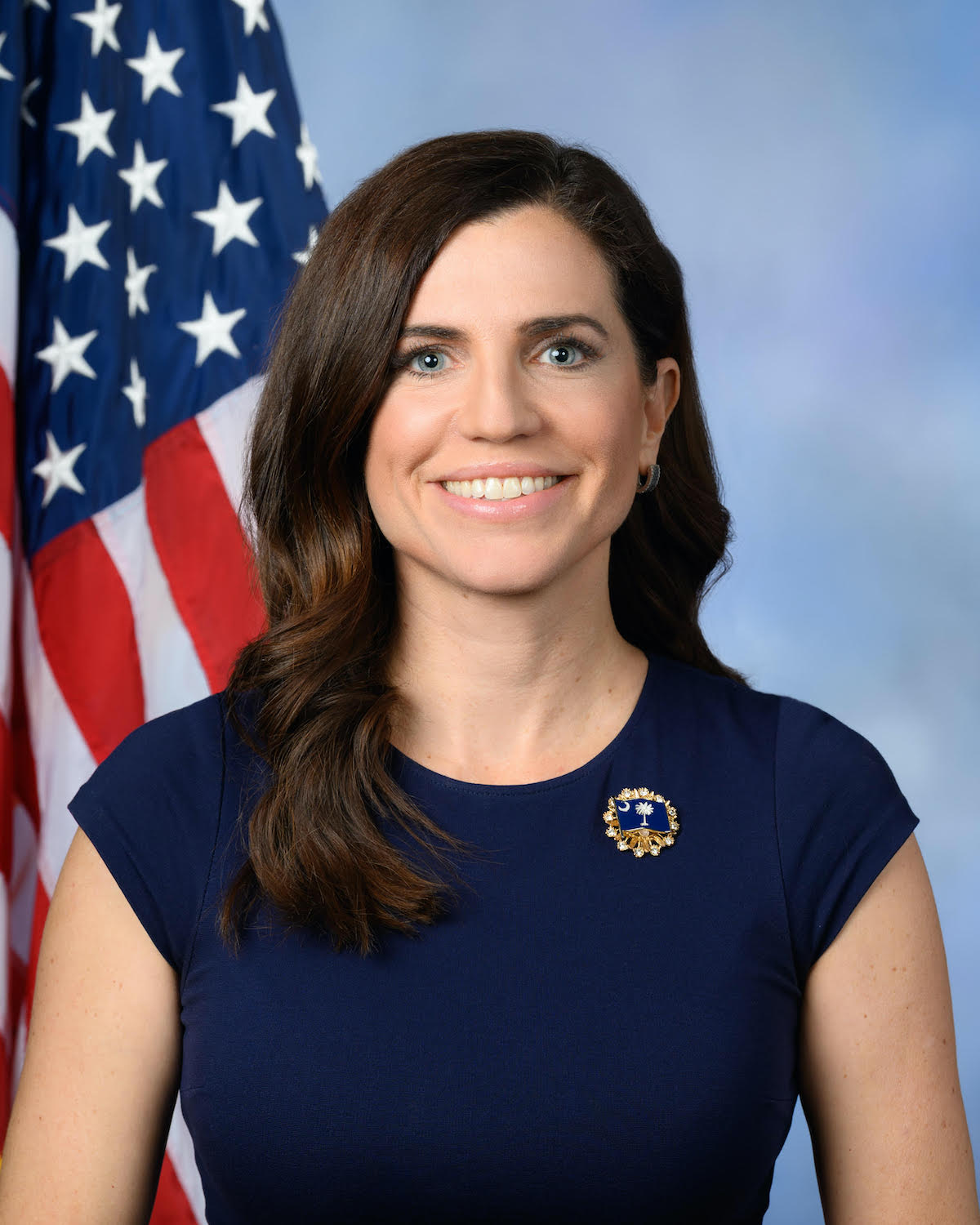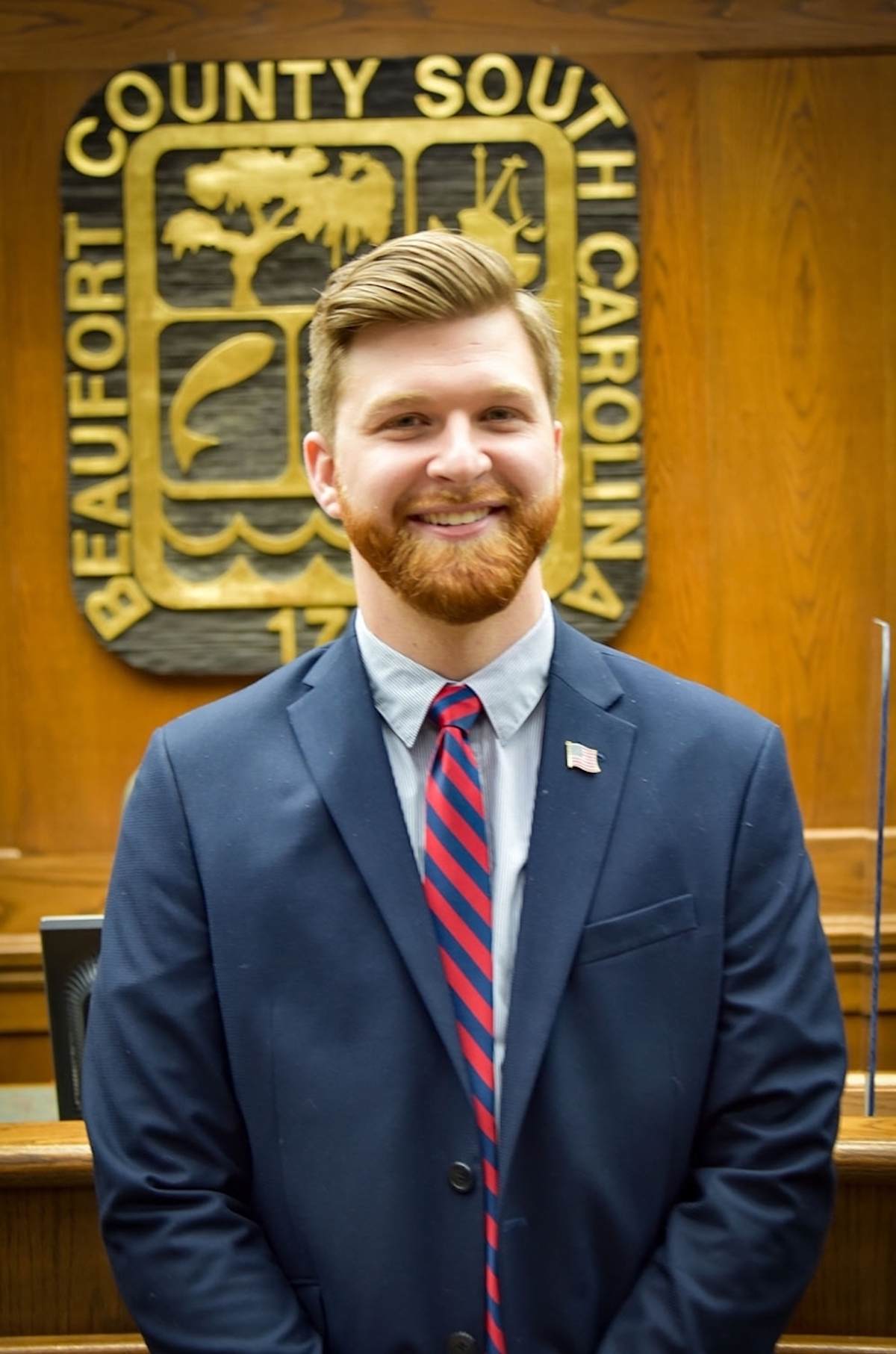By Tony Kukulich
Rep. Nancy Mace, R-SC 1, was in Beaufort on Tuesday, March 22, to participate in a panel discussion regarding the threat to national security posed by climate change with a particular emphasis on the projected impact to Marine Corps Recruit Depot Parris Island.
“I think anyone in the military will tell you that operational readiness is going to be the most important issue, ensuring that a storm doesn’t take out a training facility or interrupt the training of Marines on Parris Island,” Mace told reporters after the panel. “Any military base on the coast is going to have very similar issues. The rate of sea-level rise is very concerning. They’ve done a very good job so far, but we’ve got to be thinking 2030, 2050. What do we need to have on base to ensure the longevity of Parris Island?”
Mace was joined by Brig. Gen. Stephen A. Cheney, USMC (Ret.) and South Carolina’s Chief Resilience Officer Ben Duncan. Duncan is the first to hold that position after the South Carolina Office of Resilience was founded just two years ago. The event was hosted by The Nature Conservancy (TNC).

“The Nature Conservancy is convening this conversation because it’s so important that we look at practical solutions to the challenges that are facing our world,” TNC Executive Director Dale Threatt-Taylor said as the event got under way. “We know we can see (sea-level rise) right here on Parris Island. We can see it right here in South Carolina. We can see it in Beaufort County. We know the impacts of sea-level rise. We know the challenges that are affecting our roadways, our facilities and our bases.”
The 8,000-acre Parris Island facility is the second oldest Marine base in the country. Marines started training recruits there in 1915, and now approximately 18,000 recruits go through the 13-week training program every year.
According to Cheney, a 2018 Department of Defense study listed Parris Island as the military base most susceptible to climate change.
“That kind of lit the fuse, saying we really need to do something about protecting Parris Island,” he said.
Cheney was the commanding general of Parris Island from 1999 until his retirement in 2001. He said he was warned before assuming command there that hurricanes would be one of his biggest challenges, though it had been several decades since the area suffered a direct strike. Within months, Hurricane Floyd threatened to generate a 20-foot storm surge that would have put most of the base under seven feet of water.
“Fortunately, Floyd did not hit us,” Cheney said. “It brushed us and went north. What’s kind of curious about this is that it made me aware, and the base aware, of how vulnerable we were to any kind of catastrophic event. … Parris Island is intimate with this issue and has been and understands it.”
Cheney noted improvements to Parris Island including addition of solar panel arrays and construction efforts to raise roads above the floodplain. However he added that spending on the construction of seawalls and improving the infrastructure on the base is lagging. He offered Camp Lejeune’s experience with Hurricane Florence as a cautionary tale.

Hurricane Florence brushed by Parris Island and hit Camp Lejeune as a Category 2 storm. It caused nearly $4 billion worth of damage, much of it due to the age of the buildings on the base.
“That conceivably could happen here,” he said. “There are facilities on Parris Island that are easily 30 or 40 years old.”
Despite the challenges facing Parris Island, both Mace and Cheney were adamant the base will remain a viable and critical component of the nation’s defense.
“Parris Island is the number one, premier recruit training installation in the United States and for the United States Marine Corps,” Cheney said. “It ain’t going to close. Parris Island is not going anywhere.”
Tony Kukulich is a recent transplant to the Lowcountry. A native of Wilmington, Del., he comes to The Island News from the San Francisco Bay Area where he spent seven years as a reporter and photographer for several publications. He can be reached at tony.theislandnews@gmail.com.










